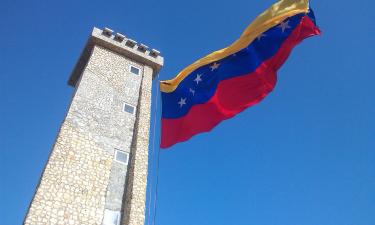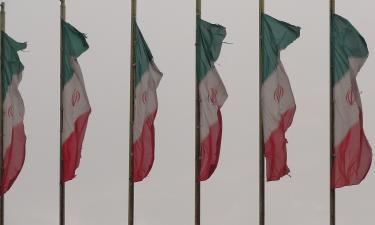Will Russia Ban Abortions?
 "My husband is a teacher and does not earn very much. I am the breadwinner for our two children and my sick mother-in-law. How can we think about having another baby?" Natalya V. says bitterly. A nursery school teacher, she has recently had an abortion.
"My husband is a teacher and does not earn very much. I am the breadwinner for our two children and my sick mother-in-law. How can we think about having another baby?" Natalya V. says bitterly. A nursery school teacher, she has recently had an abortion.
"I have no choice. A child would ruin all my plans," says Irina N., a 19-year-old student who has applied to doctors for the same purpose.
Up to 60% of Russian pregnancies end in abortions, and 10% of the women who have them are below the age of eighteen. The rates may prove fatal to the nation, considering its current demographic crisis, warns leading expert Dr. Vladimir Kulakov, Director of the Obstetrics, Gynaecology and Perinatology Research Centre attached to the Russian Academy of Medical Sciences. "Any abortion affects the health, to say nothing about back street ones," says gynaecologist Professor Klara Serebrennikova from Moscow's Sechenov Medical Academy. "15% of patients younger than twenty have theirs outside hospital and such surgery results in inflammations, and is main source of infertility later in life." Surgical abortions during the intermediate and late stages of pregnancy endanger the mother's health. This kind of surgery accounts for 30% of maternal deaths, says Deputy Health Minister Olga Sharapova.
Russia has more than 500 family planning centres. A federal target programme is well underway, and sex education centres to help young people are becoming more widespread. Despite all these efforts, the country remains a world leader in terms of abortion rates. For every 100 women of childbearing age, there are 60 abortions in Russia, as against 10 to 15 in Britain and 5 or 6 in the Netherlands. When a Russian woman decides to terminate a pregnancy, she usually chooses surgery, while medication is the preferred option in the West.
However, there is some cause for optimism: the number abortions in Russia halved between 1990 and 2001 from 4,103,000 to 2,015,000, and went on down to 1,944,000 in 2002. Nevertheless, this is still an alarmingly high figure. A mere 40% of pregnancies are planned, and even then, 10% of them end in miscarriages. Moreover, disease rates for girls in the 15-17-age bracket, i.e. future mothers, have increased by 30% in the last five years.
This type of situation with regard to abortion usually means that the public are poorly informed about sexual matters. Russia experienced its sexual revolution more than a decade ago, but many people, particularly teenagers, do not know enough about contraceptives, partially because they are exorbitantly expensive. The Health Ministry launched a programme in the mid-1990s to distribute contraceptives free to women in high-risk groups, which soon helped to cut the abortion rate among them by 40%. Unfortunately, the programme was ended due to a lack of financing and then abortion rate again began to rise.
Many people are against any prospective abortion ban. Firstly, they believe, women are entitled to make a free choice. Secondly, 23.3% of the population live below the poverty level. Other arguments include medical difficulties experienced by the mother and rape victims who do not want to give birth to their attacker's child. Moreover, experts warn that if a ban is introduced, the number of back street abortions will surge.
Russian anti-abortionists are far less radical than their counterparts in the West. The American public is leaning towards atotal ban and some activists have gone so far as to commit arson attacks against abortion clinics. Russian campaigners prefer to run adverts in the press and to distribute leaflets. One of the most striking one portrays a baby with a smashed head with the caption, "Don't kill me, Mummy!" The most uncompromising opponent of abortion is the Russian Orthodox Church. "It has always regarded abortion as murder. As we deny another the right to live, we come to deny life in whatever manifestation," says Father Dmitri Smirnov. "Fathers of aborted babies share the sin with the mothers," adds Father Artemy Lebedev. The Church equally denounces contraception, as it prevents the main goal of marriage, reproduction, from being fulfilled.
Although legislation in Ireland, Mexico, Indonesia, Nepal and some other countries stipulates imprisonment for women who terminate their pregnancies, Russia will hardly follow suit. Abortion was banned in the Soviet Union until 1955, but women still found illegal ways to terminate their pregnancies. Today, specialists believe that restrictions might be a viable option, but a complete ban is unrealistic.
Physicians think that financial incentives might influence a change in attitudes. "Paradoxically, Russians can have an abortion free, but it costs a lot of money to treat an infertile woman," says Vladimir Kulakov. Many of his colleagues think abortion rates will come down if substantial fees are introduced. However, this will neither help to increase birth rates, nor will it benefit unwanted children, who will be packed off to orphanages at best.
Local administrations are paying baby grants in many parts of Russia. From next year, every couple in Moscow will be entitled to 15,000 rubles, or about $500, for their first child, 21,000 for the second and 30,000 for a third. This idea, though, will hardly solve the abortion problem, especially in Moscow, which is a very expensive city. "No one will coax or force Russian women into having three kids each," says prominent demographer Yevgeny Andreyev, staff expert at the Demographic and Human Ecological Centre under the National Economic Prognostication Institute of the Russian Academy of Sciences.
A legislative remedy was recently put forward. The Cabinet cut the number of social categories allowing abortions to be conducted in the late stages of pregnancy. The list of 13 items fell to a mere four when the initiative was finally approved in September. The right to terminate a pregnancy belongs to women who have been stripped of their parental rights by a court ruling, as well as those who have been imprisoned, raped or whose husband is disabled or died during their pregnancies. Categories that have been removed from the list of valid indications include if one of the parents is a refugee or unemployed, if they have no housing, are low income families, or if there are more than three children in the family.
"The previous list of social indications was approved by a government decree of 1996. It was a forced and short-lived measure to prevent back street abortions, which were being practised as a result of socio-economic upheaval in the country," explains Olga Sharapova.
"The state and the public now understand how important civilised reproductive behaviour is," Klara Serebrennikova concludes. "But it will take time to see any great results."
Olga SOBOLEVSKAYA, RIAN
Subscribe to Pravda.Ru Telegram channel, Facebook, RSS!




